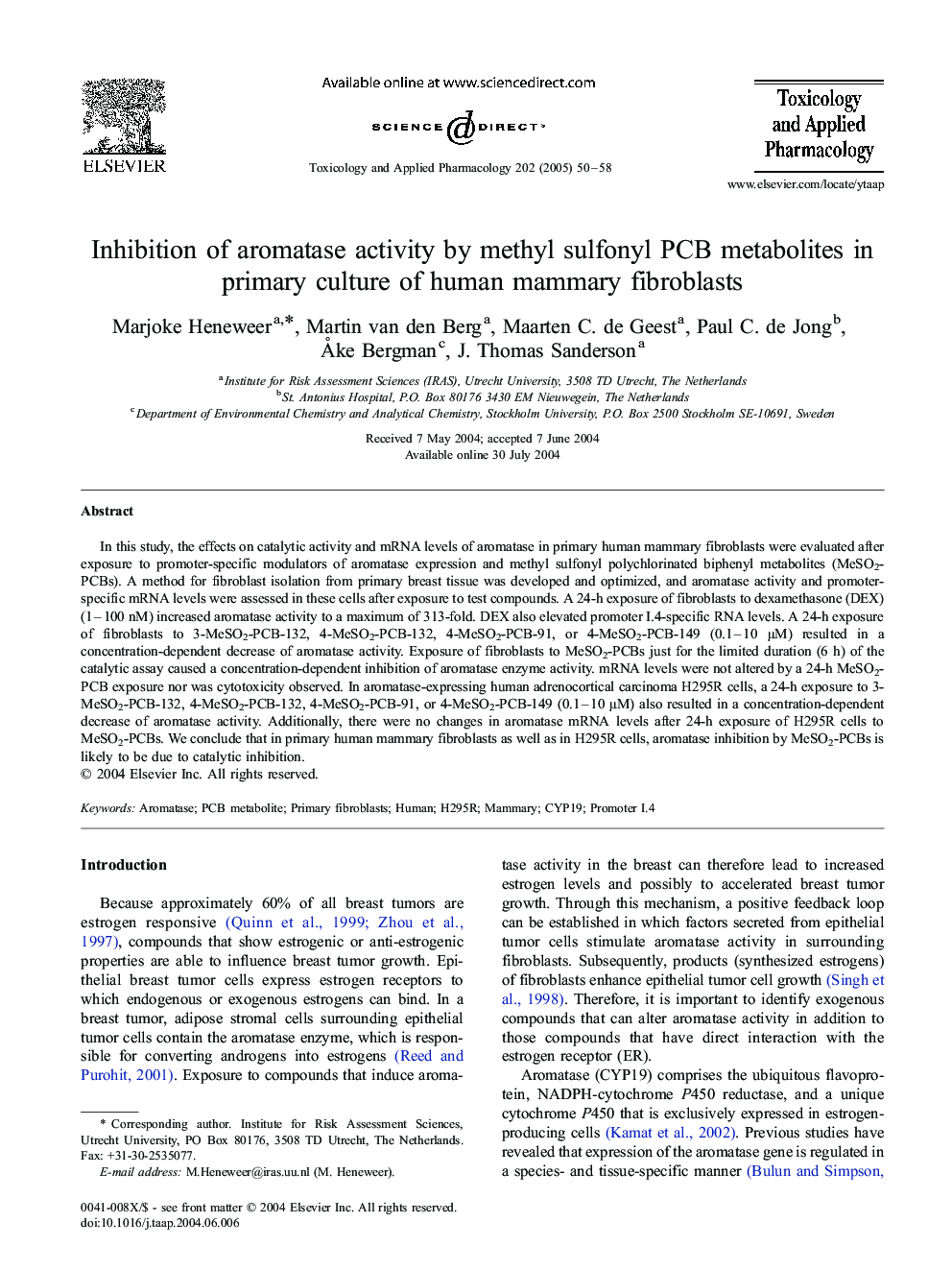| Article ID | Journal | Published Year | Pages | File Type |
|---|---|---|---|---|
| 9018152 | Toxicology and Applied Pharmacology | 2005 | 9 Pages |
Abstract
In this study, the effects on catalytic activity and mRNA levels of aromatase in primary human mammary fibroblasts were evaluated after exposure to promoter-specific modulators of aromatase expression and methyl sulfonyl polychlorinated biphenyl metabolites (MeSO2-PCBs). A method for fibroblast isolation from primary breast tissue was developed and optimized, and aromatase activity and promoter-specific mRNA levels were assessed in these cells after exposure to test compounds. A 24-h exposure of fibroblasts to dexamethasone (DEX) (1-100 nM) increased aromatase activity to a maximum of 313-fold. DEX also elevated promoter I.4-specific RNA levels. A 24-h exposure of fibroblasts to 3-MeSO2-PCB-132, 4-MeSO2-PCB-132, 4-MeSO2-PCB-91, or 4-MeSO2-PCB-149 (0.1-10 μM) resulted in a concentration-dependent decrease of aromatase activity. Exposure of fibroblasts to MeSO2-PCBs just for the limited duration (6 h) of the catalytic assay caused a concentration-dependent inhibition of aromatase enzyme activity. mRNA levels were not altered by a 24-h MeSO2-PCB exposure nor was cytotoxicity observed. In aromatase-expressing human adrenocortical carcinoma H295R cells, a 24-h exposure to 3-MeSO2-PCB-132, 4-MeSO2-PCB-132, 4-MeSO2-PCB-91, or 4-MeSO2-PCB-149 (0.1-10 μM) also resulted in a concentration-dependent decrease of aromatase activity. Additionally, there were no changes in aromatase mRNA levels after 24-h exposure of H295R cells to MeSO2-PCBs. We conclude that in primary human mammary fibroblasts as well as in H295R cells, aromatase inhibition by MeSO2-PCBs is likely to be due to catalytic inhibition.
Related Topics
Life Sciences
Environmental Science
Health, Toxicology and Mutagenesis
Authors
Marjoke Heneweer, Martin van den Berg, Maarten C. de Geest, Paul C. de Jong, Ã
. Bergman, J.Thomas Sanderson,
